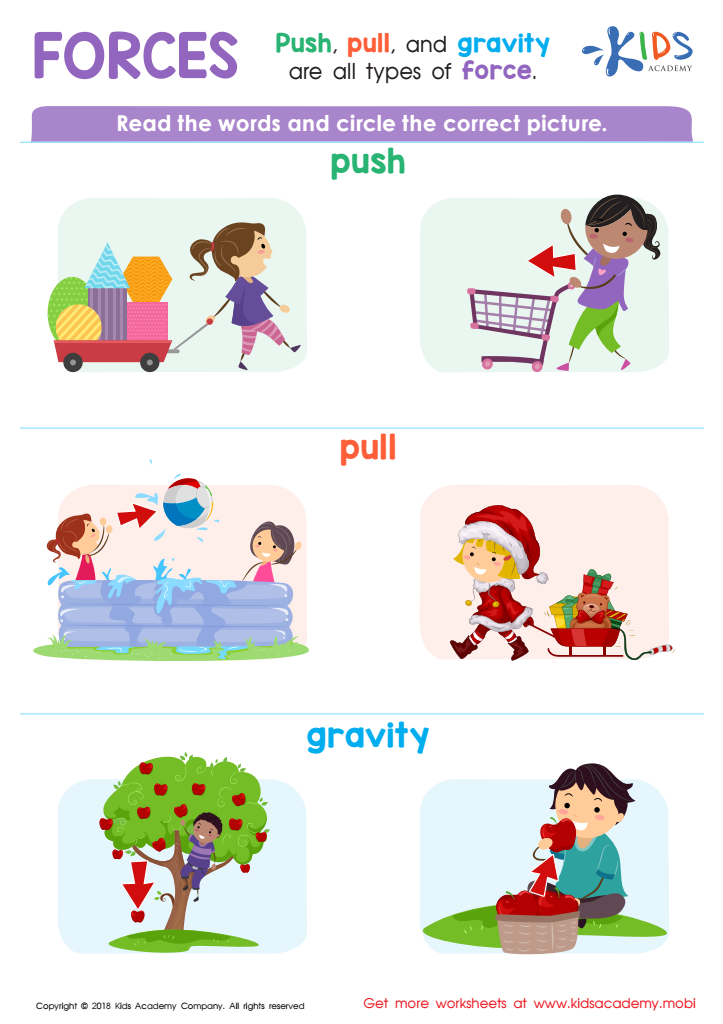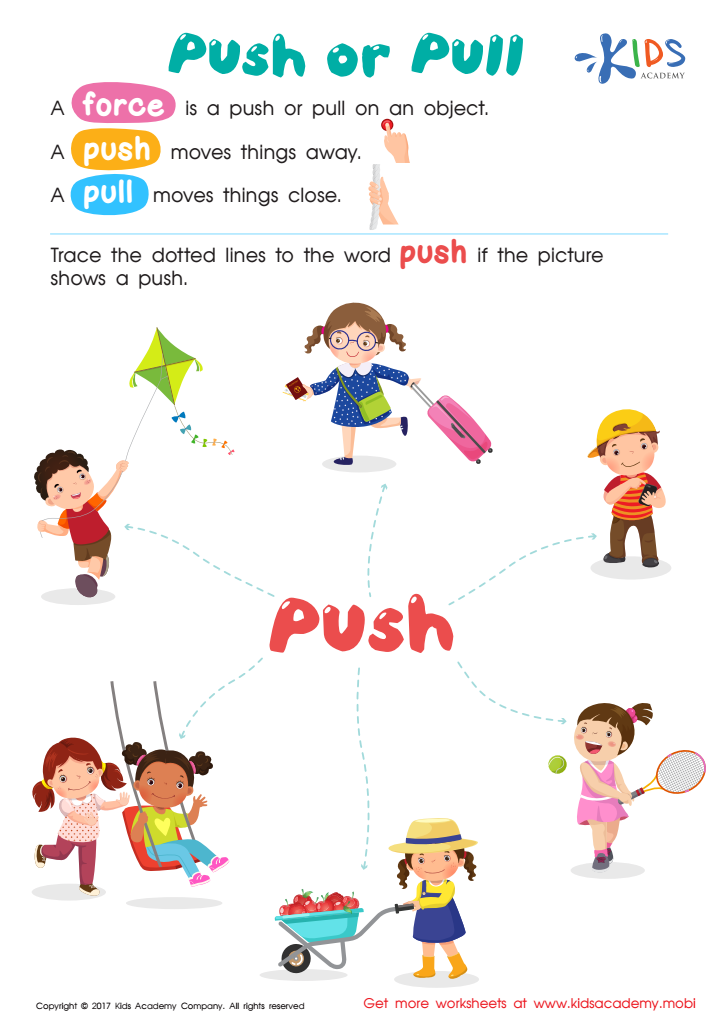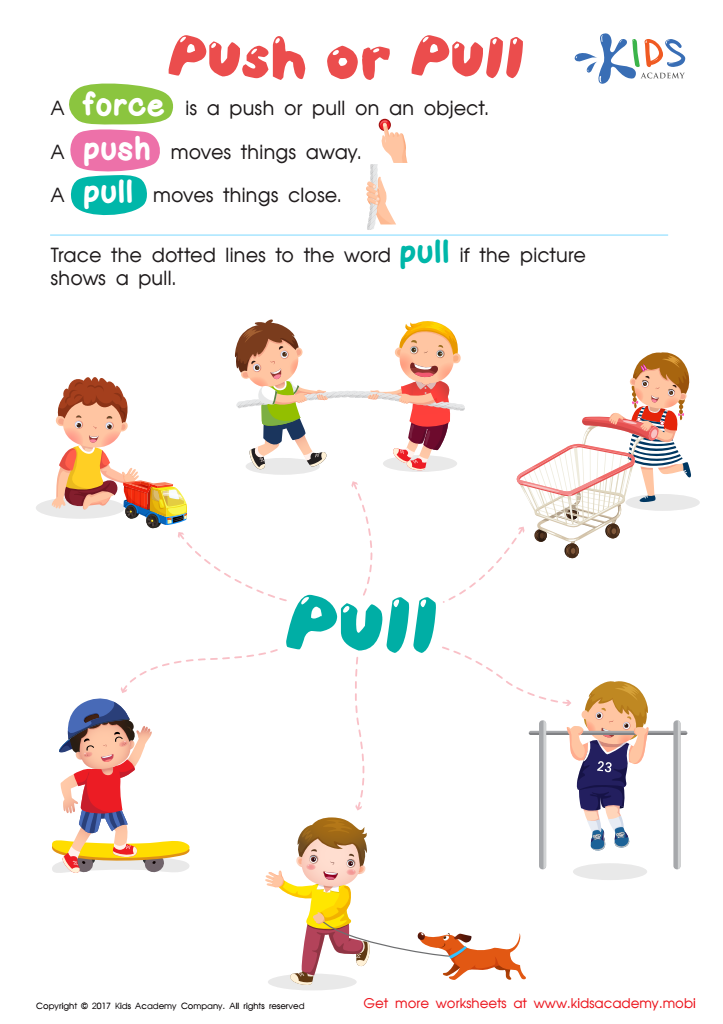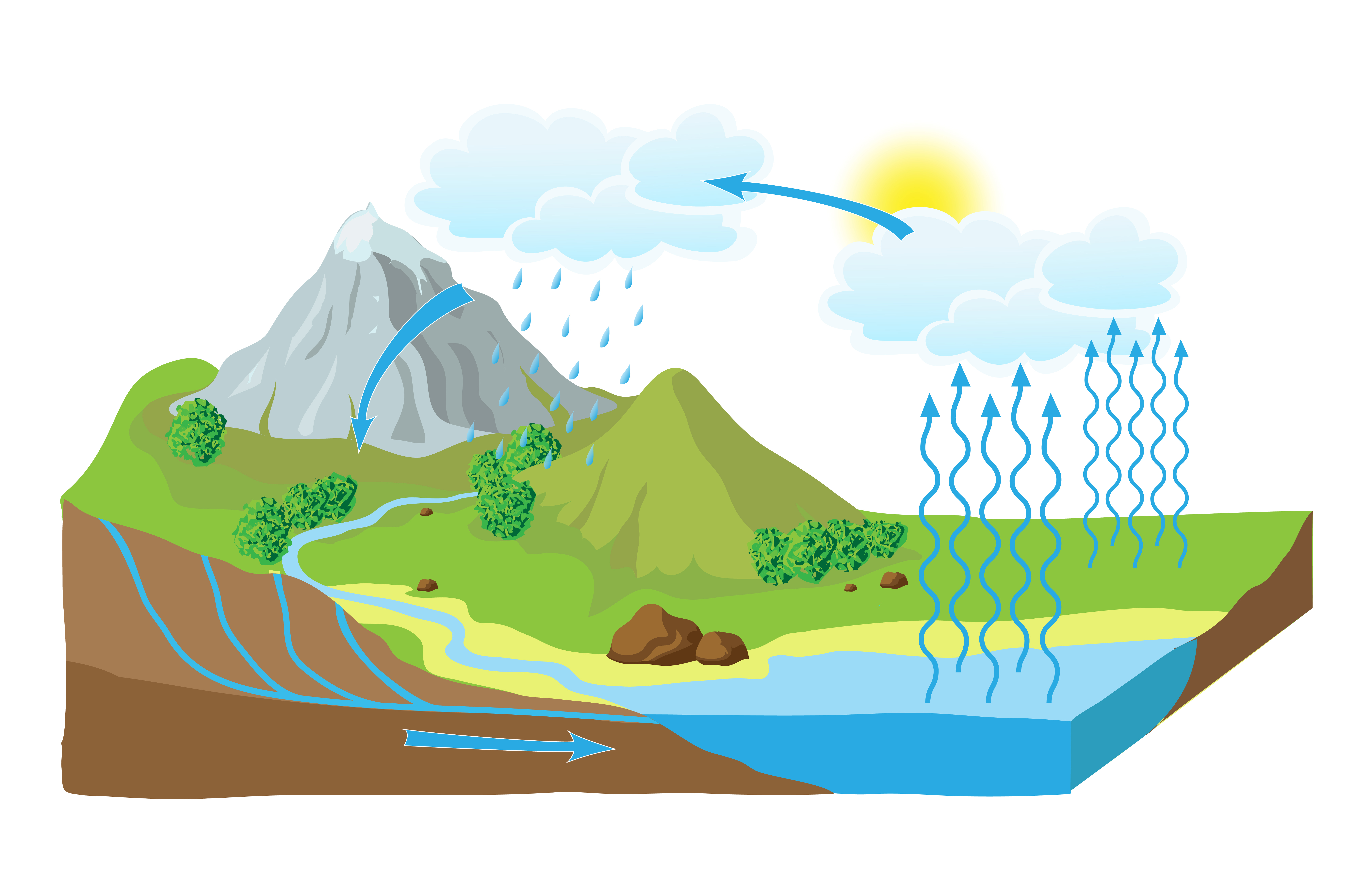Understanding forces Normal Physical Science Worksheets for Ages 5-7
3 filtered results
-
From - To
Explore the fascinating world of forces with our "Understanding Forces" Normal Physical Science Worksheets, specially designed for children aged 5-7. These engaging and interactive worksheets introduce young learners to essential concepts such as push and pull, gravity, and friction. Through vibrant illustrations and age-appropriate activities, children will hone their critical thinking skills while enjoying science. Each worksheet encourages exploration and hands-on learning, making science fun and accessible. Perfect for home or classroom use, these resources will inspire curiosity and a solid foundational understanding of physical forces in the world around them. Dive into the adventure of science today!


Forces Worksheet


Push or Pull Worksheet


Pull or Push Worksheet
Understanding forces in physical science is crucial for children aged 5-7 as it lays the foundational concepts for how the world works. Parents and teachers should care about this subject because it encapsulates critical thinking and encourages curiosity, essential traits for young learners. At this age, children are naturally inquisitive and actively explore their environment; introducing them to basic forces—like push, pull, gravity, and friction—helps them make sense of their experiences.
Knowledge of forces enhances children's observational skills as they learn to predict outcomes based on their behaviors with objects. For instance, when they understand why a ball rolls or why objects fall, they begin to grasp cause-and-effect relationships. This foundational knowledge not only boosts their scientific understanding but also enhances problem-solving skills in everyday scenarios.
Moreover, incorporating forces into play and hands-on activities makes learning dynamic and engaging. It promotes collaboration through group activities, encouraging social skills and teamwork. By highlighting the relevance of everyday phenomena and encouraging exploration, parents and teachers can foster a lifelong love for science. Ultimately, understanding forces empowers children not just academically but also in developing a curious, analytical mindset that benefits them across all areas of learning.
 Assign to My Students
Assign to My Students
















